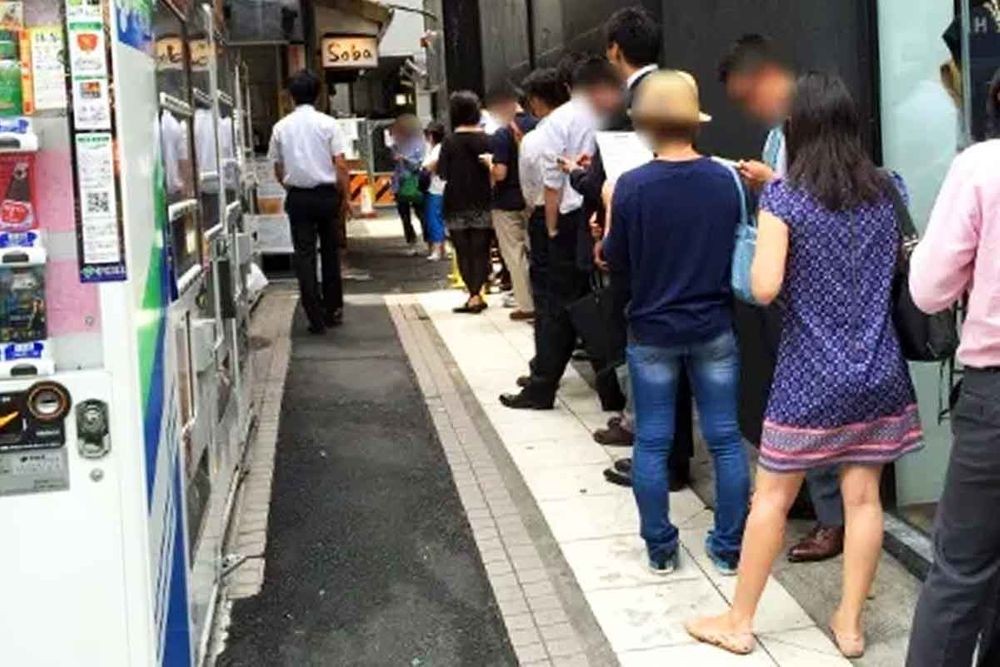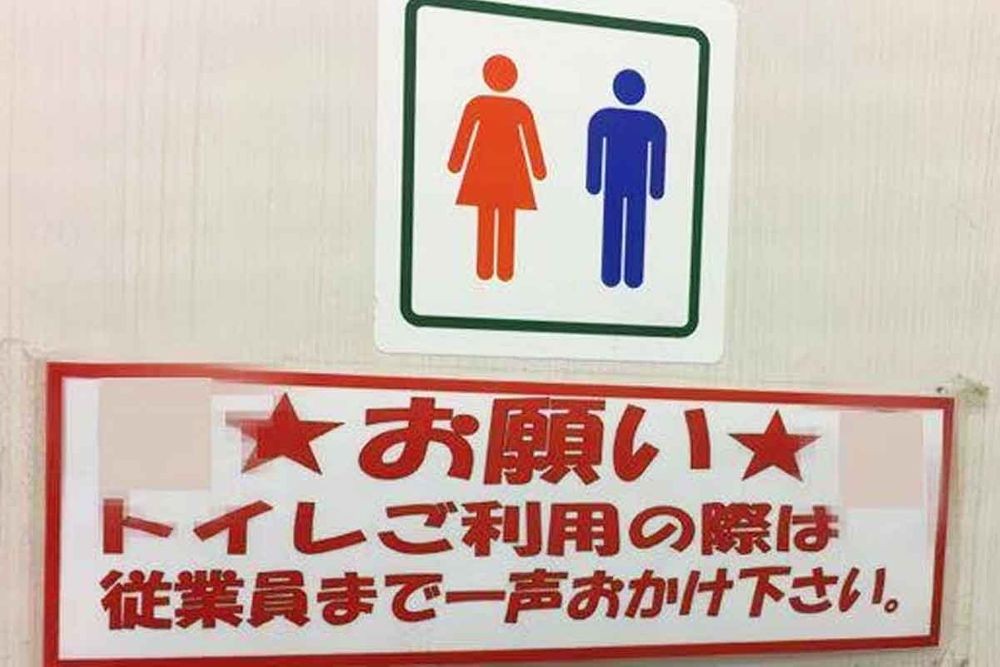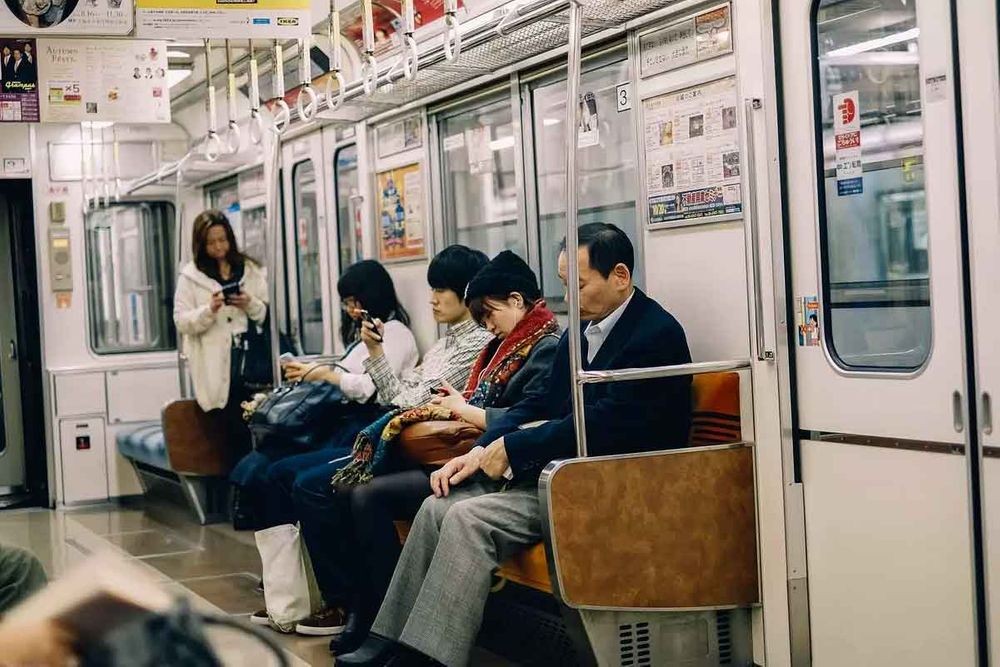
Many travelers venture to Japan for their vacations. A YouTuber, Tokyo Kyu Jjang, who resides in Tokyo, Japan, recently released a video titled “Points to be Aware of During Travel in Japan, as Advised by Locals.” In this video, the YouTuber highlights essential considerations for traveling in Japan, as highlighted by residents. Let’s take a closer look at the points emphasized by the YouTuber for travelers exploring Japan.

The first point YouTuber ‘Tokyo Kyu Jjang’ introduced is the need to wait for the server to guide you to your table when visiting a restaurant. Even if no customers are present, waiting until a staff member approaches you is customary. The staff member will typically inquire about the number of guests before leading you to your table. Then, you follow the server to the designated seating area.
In Japan, waiting at the entrance for a staff member to assist you before being seated is customary. This practice is part of the typical restaurant culture in Japan.

Most convenience stores in Japan have restroom facilities where not all convenience stores provide them. A sign near the restroom often indicates, “Please ask a staff member before using.”
In Japan, informing a staff member before using the restroom at a convenience store is considered polite. Unlike in some countries, there’s usually no fee associated with using these facilities. Typically, customers purchase from the restroom, following the common practice of Japanese convenience stores.

The YouTuber discussed the differences in subway etiquette in Japan. He mentioned that Japan has a strong aversion to causing others inconvenience, a trait known as “Meiwaku culture.”
Due to this influence, it’s customary not to make phone calls on the subway in Japan. While there’s no legal prohibition against making calls, people refrain from doing so to avoid disturbing others. Also, Japanese people avoid engaging in loud conversations on the subway. If the conversation is necessary, they speak softly, minimizing the volume of their voices.
Even when using earphones, people are mindful to keep the volume low to prevent sound leakage. When traveling on the subway in Japan, it’s important to remember not only to refrain from making phone calls but also to avoid loud conversations. Eating on the subway is also discouraged.
The YouTuber mentioned that despite Japan’s strong culture of not causing inconvenience to others, there’s an unexpected behavior regarding priority seating. In Japan, people typically don’t vacate priority seats unless a passenger who needs them is present. When a passenger who requires a priority seat boards the subway, people will offer their seats.

Japan maintains a robust cash-centric culture. While the prevalence of card transactions is increasing, many establishments still primarily accept cash. For prospective travelers to Japan, ensuring access to cash is imperative. Notably, Japan is renowned for its abundance of coins, frequently utilized in transactions.
Given the tendency for cash transactions to yield an excess of coins, carrying a dedicated coin purse is prudent when journeying through Japan. Despite the profusion of coins, cashiers in Japan exhibit patience and understanding, graciously accommodating customers as they meticulously count out their coins for payment.
There is no need for haste when engaging in cash transactions in Japan. Individuals may take the necessary time to meticulously count their coins and conclude the transaction at their own pace.

The YouTuber also provided insights into precautions when boarding taxis in Japan. Japanese taxis feature automatic doors, so passengers should refrain from attempting to open the doors themselves. It often leads to initial confusion for those embarking on their first taxi journey in Japan.
In Japan, passengers must await the taxi driver to open the doors for them. Whether boarding or alighting from the back seat, it is customary for the taxi driver to handle the door. This protocol applies universally to all taxis. However, passengers seated in the front seat are responsible for operating their respective door.
The adoption of automatic doors in Japanese taxis dates back to 1964, coinciding with the Tokyo Olympics. This technological advancement was initiated as Japan prepared to host the Olympics and sought methods to welcome and accommodate foreign visitors, becoming a hallmark of their hospitality.
Furthermore, some argue that the installation of automatic doors in Japanese taxis serves to enhance driver safety. By preventing passengers from opening and closing doors, the responsibility for any accidents resulting from such actions falls squarely on the taxi driver.
Travelers boarding taxis in Japan should thus remember to refrain from attempting to open the doors themselves and instead patiently await the taxi driver to assist them.
Photos=YouTube Channel Tokyo Kyu Jjang, bengo4, h-navi.jp, j-cast, nikkei.










Most Commented